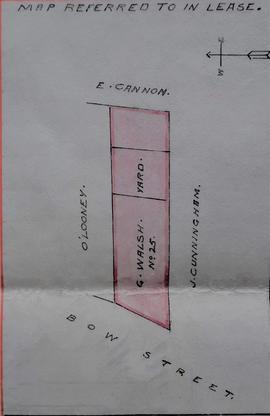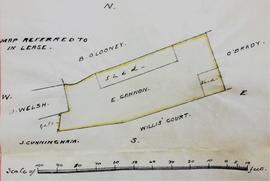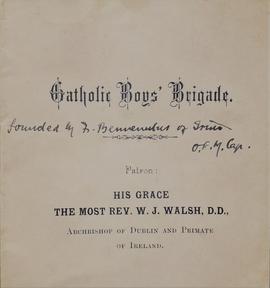Copy conveyance of George Kiernan and others to Henry Hunt
- IE CA CS/2/2/3/1
- File
- 11 Feb. 1784-13 June 1856
Part of Irish Capuchin Archives
Copy conveyance of George Kiernan, apothecary, Robert Kiernan, coach maker, Surdeville Kiernan, jeweller, and Ann Kiernan, spinster, to Henry Hunt, of ‘a messuage, tenement and dwelling house, yard, and garden situate on the west side of Church Street in the City of Dublin formerly in the possession of John Cane and his undertenants but now in the possession of Robert Joseph Sutter .... containing in the breadth from north to south 55 feet, in the rear 22 feet, and in depth from east to west 185 feet’. In consideration of £400. The recital of previous deeds notes that James Kiernan, great-grandfather of above-noted lessors, obtained this property from the Trustees of Forfeited Estates on 21 May 1703. The properties were previously owned by Richard Fagan who was attained for treason. The copy was compiled by T.J. Furlong, 11 Eustace Street. With a renewal of the said lease by James Hunt to John Smith, Finstown, Dublin in consideration of £2. 28 Dec. 1815, and a further renewal by Rev. Henry Hunt, Lurgan Rectory near Virginia, County Cavan, to John Smith, Lucan, County Dublin, in consideration of £2 15s 4½d. 13 June 1856.



